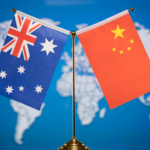Beijing, November 19 – Chinese Foreign Ministry spokesperson Mao Ning presided over the regular press conference on the 19th.
A journalist asked: It is understood that China has notified Japan about suspending imports of Japanese aquatic products. Can the Foreign Ministry provide relevant details and reasons?
Mao Ning: As I understand, Japan previously committed to fulfilling its regulatory responsibilities for aquatic products exported to China and ensuring product quality safety, which is a prerequisite for Japanese aquatic products to be exported to China. However, Japan has currently failed to provide the promised technical materials.
I would also like to emphasize that recently, due to Japanese Prime Minister Takaichi Sanae’s retrogressive actions and erroneous remarks on major issues including Taiwan, which have aroused strong public indignation among Chinese people, under the current circumstances, even if Japanese aquatic products were exported to China, there would be no market for them.
Beijing
Beijing is the capital of China and a city with over 3,000 years of history, serving as the nation’s political and cultural center for much of the last eight centuries. It is renowned for its magnificent historical architecture, including the Forbidden City—the imperial palace from the Ming and Qing dynasties—and the nearby Great Wall. Today, Beijing is a sprawling modern metropolis that seamlessly blends its ancient heritage with contemporary global influence.
Chinese Foreign Ministry
The Chinese Foreign Ministry, formally known as the Ministry of Foreign Affairs of the People’s Republic of China, is the government agency responsible for the nation’s diplomatic relations and foreign policy. It was established in the founding year of the PRC in 1949, succeeding the foreign office of the previous Republic of China government. The ministry represents China in international affairs and manages its embassies and consulates worldwide.
Japan
Japan is an island nation in East Asia with a history spanning millennia, featuring ancient traditions like the samurai and shogunate systems. It is renowned for its unique cultural sites, including ancient Shinto shrines, Buddhist temples, and historic castles that reflect its rich heritage. Today, it harmoniously blends these deep-rooted customs with modern technological advancements and pop culture.
Japanese aquatic products
“Japanese aquatic products” refers to the nation’s deep cultural and economic relationship with the sea, not a single site. This tradition, shaped by Japan’s island geography, has a long history of sustainable fishing and aquaculture. It is globally recognized through the preparation and consumption of seafood, most famously in dishes like sushi and sashimi.
Japanese Prime Minister Takaichi Sanae
That request appears to contain a misunderstanding. Takaichi Sanae is a Japanese politician who served as Minister for Internal Affairs and Communications and other cabinet posts, not a place or cultural site. Therefore, a summary about a location cannot be provided.
Taiwan
Taiwan is an island off the coast of China with a complex history of indigenous settlement, followed by periods of Dutch, Spanish, and Chinese rule, and a period of Japanese administration from 1895 to 1945. It is renowned for its vibrant democracy, bustling night markets, and stunning natural landscapes, including Taroko Gorge and Sun Moon Lake. The island has developed a distinct cultural identity that blends its diverse historical influences with traditional Chinese heritage.



